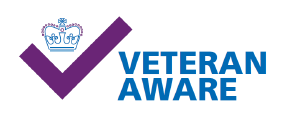Crynodeb o'r swydd
- Prif leoliad
- Eating Disorders
- Gradd
- NHS AfC: Band 7
- Contract
- Parhaol
- Oriau
- Rhan-amser - 22.5 awr yr wythnos (15 hours with CEDS-CYP, 7.5 hours with Adult Eating Disorder Service)
- Cyfeirnod y swydd
- 333-G-ED-0449
- Cyflogwr
- Central and North West London NHS Foundation Trust
- Math o gyflogwr
- NHS
- Gwefan
- Vincent Square Clinic Eating Disorder Service
- Tref
- London
- Cyflog
- £56,276 - £63,176 Pro rata per annum incl. HCAS
- Cyfnod cyflog
- Yn flynyddol
- Yn cau
- 26/09/2025 23:59
Teitl cyflogwr

Clinical/Counselling Psychologist
NHS AfC: Band 7
CNWL (Central and North West London NHS Foundation Trust) has almost 8,000 staff providing integrated healthcare to a third of London's population, Milton Keynes and areas beyond. We involve service users, carers, the public, staff and partner organisations in the way that we are run.
Our catchment area spans diverse communities, with over 100 first languages spoken. It contains areas of great affluence as well as areas of much deprivation. We are committed to providing services that meet the needs of the people who use them, and we actively encourage involvement from local people who can help make a difference. We’re proud of our diversity and we continue to undertake new initiatives to advance equality for LGBT+, BME and people with disabilities to promote good relations and understanding between our staff.
We are recognised locally, nationally and internationally for providing high quality, innovative healthcare. We aim to employ only the best people, and our experts are frequently called upon to contribute to national health strategy and policy, and many models of our care have been adapted for use in other countries.
We offer a generous relocation package (subject to eligibility assessment) and flexible working options, including bank assignments for most roles. For more information on these and other benefits of working for us, see our Benefits, Reward and Wellbeing page
Become part of our team. We care for you as much as you care for others.
CNWL NHS Foundation Trust are committed to safeguarding all children and vulnerable adults and expect all staff and volunteers to share this commitment. We follow safe recruitment practices to protect children and vulnerable adults.
Trosolwg o'r swydd
This post for a Clinical/Counselling Psychologist to work across the CNWL Community Eating Disorders Service for Children and Young People and the Vincent Square Eating Disorders Service focusing on young people between the ages of 16-25. The post holder's main clinical responsibilities will be working with young people and their families between the ages of 16-25 with the aim of providing a seamless transition between the two teams. The post holder will work across the two services effectively with MDT colleagues and partner agencies to deliver an accessible, high quality service including:
- Specialist psychological assessment and evidence-based psychological treatment of young people aged 16-25 and their families affected by eating disorders
- To support seamless community transitions at VSEDS.
- To hold a CYP caseload of older adolescents aged 16+.
- Working with colleagues on service development and continuous improvement of care
The post offers the opportunity for family work, 1:1 work, group work, multi-agency liaison and consultation. The ideal candidate will be enthusiastic, build excellent relationships with MDT colleagues and service-users, and have experience of working with young people in services that manage complexity or risk. Eating disorder experience is valued, but someone who has relevant experience and a passion for learning would be welcomed and supported to develop new specialist eating disorder skills.
Prif ddyletswyddau'r swydd
Your time will be split between clinics in Kensington, Harrow and Paddington. Staff wellbeing and CPD are priorities.
General Duties
- To provide assessments of clients, based upon the appropriate use, interpretation and integration of complex data from a variety of sources (including from clients, family and others involved in the client’s care).
- To diagnose patients’ eating disorders and related psychiatric problems.
- To formulate and implement plans for treatment and/or management of a client’s mental health problems, based upon an appropriate conceptual framework of the client’s problems, and employing methods based upon evidence-based models for eating disorders.
- To implement psychological interventions for individuals, carers, families and groups; refining psychological formulations, drawing upon different models and maintaining a number of provisional hypotheses.
- To evaluate and make decisions about treatment options, considering both theoretical and therapeutic models and complex factors concerning historical and developmental processes that have shaped the individual.
- To integrate (with the psychological formulation) an understanding of the medical aspects of the eating disorders and associated medical conditions.
Transition Duties
- To support seamless community transitions at VSEDS
- To be part of both the CYP and adult OP therapy teams, holding a 16-25 caseload
- To be part of assessment/assessment care planning discussion of 16 and 17 year-olds in CYP
Gweithio i'n sefydliad
The post-holder will be working autonomously within professional guidelines and the overall framework of the teams' policies and procedures.
Skills required for audit, policy and service development and research within the area served by the team and the service.
The post holder will be based at the Vincent Square Eating Disorder Service and will provide clinical and other services across the community children and young people service. You will be expected to work flexibly across both the different service sites. Service provision within this scope may at times involve travelling to different sites within the catchment area.
Swydd-ddisgrifiad a phrif gyfrifoldebau manwl
Clinical
1. To provide specialist assessments of clients referred to the team, based upon the appropriate use, interpretation and integration of complex data from a variety of sources (including psychological and neuropsychological tests, self-report measures, rating scales, direct and indirect structured observations, and semi-structured interviews with clients, family members and others involved in the client’s care).
2. To diagnose patients’ eating and related psychiatric problems.
3. To formulate and implement plans for the formal psychological treatment and/or management of a client’s mental health problems based upon an appropriate conceptual framework of the client’s problems. To employ methods based upon evidence of efficacy in the outpatient setting.
4. To be responsible for implementing psychological interventions for individuals, carers, families and groups. This occurs within and across teams employed individually and in synthesis, adjusting and refining psychological formulations drawing upon different explanatory models and maintaining a
number of provisional hypotheses.
5. To evaluate and make decisions about treatment options, taking into account both theoretical and therapeutic models and highly complex factors concerning historical and developmental processes that have shaped the individual.
6. To integrate (with the psychological formulation) an understanding of the medical aspects of the eating disorders and associated medical conditions.
7. To liaise with other clinicians involved in the patient’s care, in order that appropriate physical checks and interventions are carried out to ensure the patient’s physical safety.
8. To understand the role of relevant physical treatments (e.g. nutrition, pharmacology).
To exercise autonomous professional responsibility for the assessment, treatment and discharge of clients whose problems are managed by psychologically based standard care plans.
9. To provide specialist advice, guidance and consultation to other professionals contributing directly to clients’ formulation, diagnosis and treatment plan.
10. To provide expertise, advice and support to facilitate the effective and appropriate provision of psychological care by all members of the treatment team.
11. To contribute directly and indirectly to a psychologically based framework of understanding and care to the benefit of all clients of the service, across all settings and agencies serving the client group.
12. To undertake risk assessment and risk management for individual clients, and to provide advice to other professions on psychological aspects of risk assessment and risk management.
13. To communicate in a skilled and sensitive manner, information concerning the assessment, formulation and treatment plans of clients under their care and to monitor progress during the course of both uni and multi-disciplinary care.
14. To act as care coordinator, where appropriate, taking responsibility for initiating planning and review of care plans under enhanced CPA including clients, their carers, referring agents and others involved the network of care.
Teaching, training, and supervision
1. To receive regular clinical and operational supervision in accordance with Trust guidelines.
2. To attend Staff Group with other colleagues in the service
3. To develop skills in the area of professional post-graduate teaching, training and supervision.
4. To provide supervision to other MDT staff’s psychological work, as appropriate.
5. To undertake all mandatory training that is relevant to the post, including updates.
6. Participate as required with the delivery of appropriate orientations to the department for all-new staff, learners and temporary staff.
Management and service development
- To contribute to the development, evaluation and monitoring of the team’s operational policies and services, through the deployment of professional skills in research, service evaluation and audit.
- To advise both service and professional management on those aspects of the service where psychological and/or organisational matters need addressing.
- To help manage the workloads of assistant psychologists, within the framework of the team/service’s policies and procedures.
Research and service evaluation
- To utilise theory, evidence-based literature and research to support evidence-based practice in individual work and work with other team members.
- To undertake appropriate service development research and provide research advice to other staff and clinical trainees undertaking research.
- To undertake project management, including complex audit and service evaluation, with colleagues within the service to help develop service provision.
- To familiarise themselves with, and to comply with, the Trust’s requirements on research governance.
IT responsibilities (other than those used for research)
- The post holder will input and maintain, appropriate computer and manual clinical records and statistical data and provide this to the Service Manager/Head of Speciality when necessary.
- The post holder will engage in relevant computer and IT training as required.
General
- To contribute to the development and maintenance of the highest professional standards of practice, through active participation in internal and external CPD training and development programmes, in consultation with the post holder’s professional and service managers
- To contribute to the development and articulation of evidence-based and evidence-generating clinical practice in psychology across the service, by continuing to develop the skills of a reflexive and reflective scientist practitioner. To take part in regular professional supervision and appraisal, and maintaining an active engagement with current developments in the field of psychological treatment of eating disorders and related disciplines.
- To maintain the highest standards of clinical record keeping including electronic data entry and recording, report writing and the responsible exercise of professional self-governance in accordance with professional codes of practice of the relevant professional body and with Trust policies and procedures.
- To maintain up-to-date knowledge of legislation, national and local policies and issues in relation to both the specific client group and mental health.
Manyleb y person
Skills and Knowledge
Meini prawf hanfodol
- High level knowledge of the theory and practice of cognitive-behavioural therapy.
- Skills in working with children and families with mental health and social problems
- Evidence base in relation to child mental health
- Legislation and DOH guidelines relevant to children and mental health
- Child protection policies and procedures and understanding
- Child development in relation to mental health difficulties
- Experience of working independently in the community
- Ability to apply analytical skills to multi-layered complex cases
- Ability to assess, including risks, and to formulate comprehensive assessments and offer a range of effective treatments based on formal psychological and specialist therapies and act in accordance with Child Protection and Risk Policies.
- Ability to provide ongoing treatment in complex, often unstable and frequently changing circumstances
- Ability to liaise with and manage complex professional networks in relation to individuals and families
- Capacity to work independently, but have the skills to recognise the need to consult to professional colleagues from the multidisciplinary team and/or other departments within CNWL or to external agencies
- Ability to withstand high levels of emotionally charged situations
- Ability to communicate complexity verbally and in writing with relevant administrative capacity.
Meini prawf dymunol
- Parent management training
Education
Meini prawf hanfodol
- An upper second class honours degree or higher in a subject relevant to mental health and higher level postgraduate training in an applied clinical field that includes models of psychopathology and distinct psychological therapies.
- Clinical/Counselling Psychologist registered with the HCPC.
Meini prawf dymunol
- Postgraduate training in eating disorders specific therapies (e.g. CBT-E, AFT family-based treatment, IPT)
Previous Experience
Meini prawf hanfodol
- CAMHS Experience/ Eating Disorder Experience
- Experience and understanding of the needs of a multicultural population
- In providing consultation, liaison with a range of professionals, and multidisciplinary working
- Skilled in using outcome-focused resources such as ROMS and PREMS with Service Users, and making use of such information in the course of therapy
Meini prawf dymunol
- Experience of Group Work
- Working with children & YP with an eating disorder
Gofynion ymgeisio
Rhaid i chi gael cofrestriad proffesiynol priodol yn y DU.
Mae'r swydd hon yn ddarostyngedig i Orchymyn Deddf Adsefydlu Troseddwyr 1974 (Eithriadau) 1975 (Diwygio) (Cymru a Lloegr) 2020 a bydd angen cyflwyno Datgeliad i'r Gwasanaeth Datgelu a Gwahardd.
Dogfennau i'w lawrlwytho
Rhagor o fanylion / cyswllt ar gyfer ymweliadau anffurfiol
- Enw
- Dr Mandy Dimmer
- Teitl y swydd
- Lead Psychologist
- Cyfeiriad ebost
- [email protected]
- Rhif ffôn
- 02076856620
Rhestr swyddi gyda Central and North West London NHS Foundation Trust yn Proffesiynau Perthynol i Iechyd neu bob sector



















